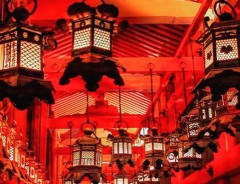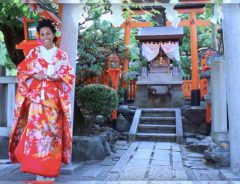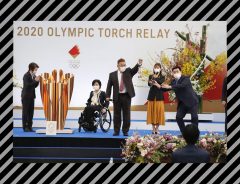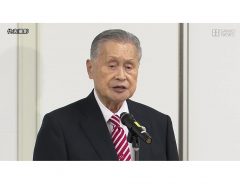
Source: © JAPAN Forward
Countdown to Tokyo 2020: Japan’s Arts and Culture Also Prepare for the Olympics Stage
- Tags:
- 2020 Olympics / Arts / Culture / Katsuhiko Hibino / Tokyo Olympics
Related Article
-

Akira predicts the 2020 Olympics and its cancellation
-

The Beauty Of This Shrine Is Stunning, But A Special Festival Inside Makes It Even More Amazing.
-

What It’s Like To Get The Full Kimono Wearing Experience in Kyoto
-

Will Japan’s Extended State of Emergency Work For or Against the Tokyo Olympics?
-

Head of the 2020 Tokyo Olympics, Yoshiro Mori, Makes Misogynist Remark
-

Paralympic World’s ‘Two-way Player’ Momoka Muraoka Says She ‘Will Not Give Up’


Yukako Ueki for JAPAN Forward
The six-month countdown to the 2020 Tokyo Olympic Games started on January 24, and the athletes are working hard in anticipation of the competition.
The Olympics, however, also serve as a cultural and artistic event, where host countries and artists of all genres can show off their talents. The Olympic Charter, which values the idea of “merging sports, culture and education,” states that implementation of cultural programs are mandatory during the tournaments and festivities.
Pursuing this opportunity, preparations now are underway following three central themes for the Tokyo Games:
Learning from the 2012 London Games, which produced cultural projects many of which continue to this day and are regarded as Olympic legacies, Tokyo is exploring to bring together Japan’s cultural and artistic powers to its Olympic stage.
Realization of An Inclusive Society
In recent years, the Olympic Games have become far more long-term and large-scale. At the London Games, the “Unlimited” project featured an artist performing underwater in her wheelchair. The performance was praised for broadening the potential for disabled artists to express themselves in a more inclusive society.
Following London’s success in 2012 and with the Sustainable Development Goals (SDGs) adopted by the United Nations in mind, Tokyo also aims to deliver a positive message concerning global issues.
The city-sponsored art project, “TURN,” is directed by Katsuhiko Hibino, 61, who serves as dean of the Faculty of Fine Arts at the Tokyo University of the Arts. TURN has initiated a program in which children from families with various problems who frequent the “children’s cafeteria” draw pictures on the cafeteria walls. This summer, TURN is working on another project, where artists will express their work through interaction with disabled persons and the elderly.
Professor Hibino explains the project’s significance: “If people with different backgrounds interact with one another through ‘art,’ which is really about accepting each other’s individuality, someone else’s affairs become personal. And as the experiences accumulate, they will lead to new ideas to resolve global issues.”
(...)
Written by Japan ForwardThe continuation of this article can be read on the "Japan Forward" site.
Countdown to Tokyo 2020: Japan’s Arts and Culture Also Prepare for the Olympics Stage